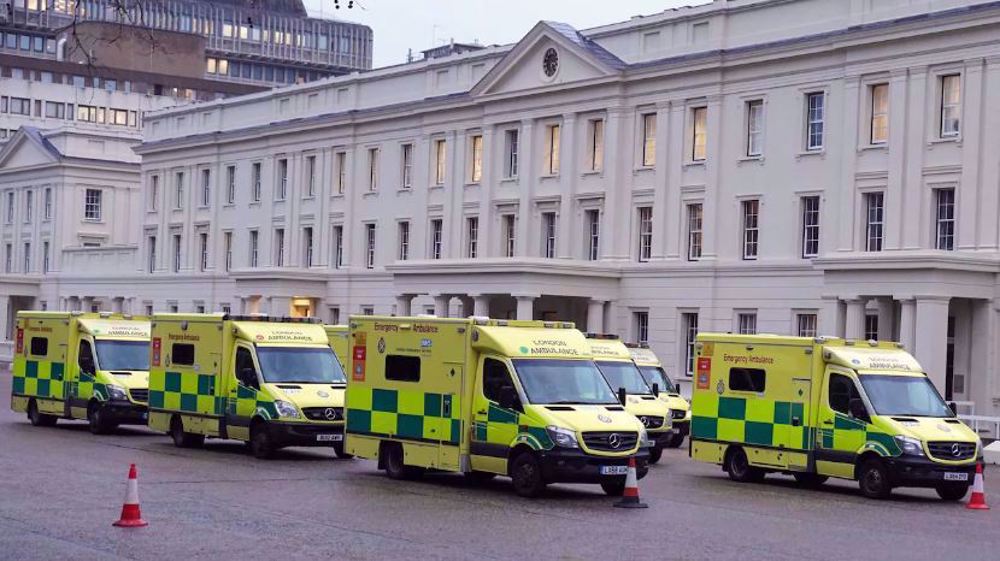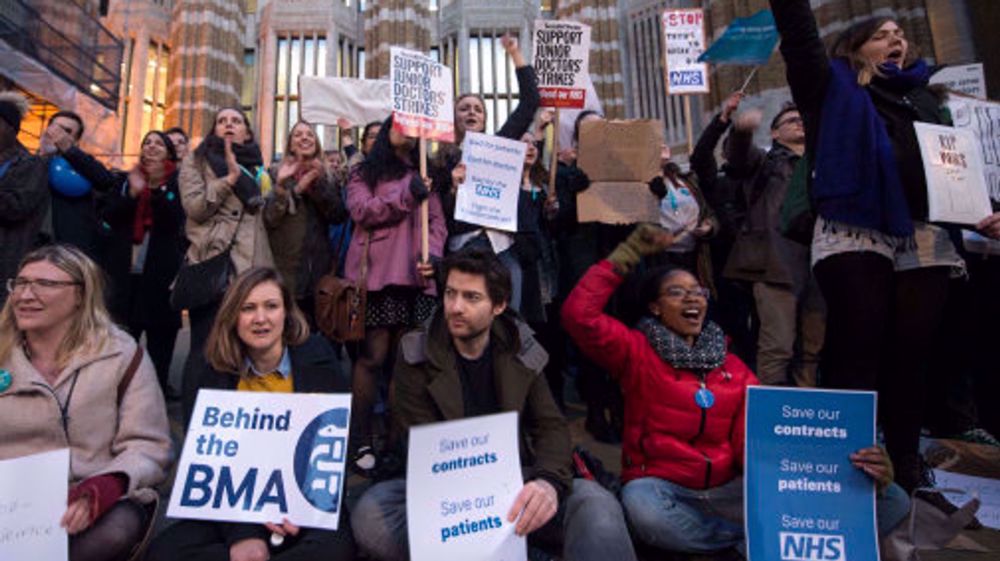Wales ambulance strike enters second day over unresolved pay dispute
More than half of ambulance workers in Wales, the United Kingdom, continued their industrial action for the second day on Tuesday as part of a 72-hour walkout over pay and working conditions.
Unite and GMB union members launched the strike on Monday in what was described as the largest industrial action in the country as previously both unions had taken part in such strikes separately.
The unprecedented strike comes after the GMB union rejected an offer from the Welsh Government - which saw 3 percent added to the existing deal.
Members from Unite union are expected to continue the strike for three consecutive while those from the GMB union walked out for 24 hours.
Sonia Thompson from the Welsh Ambulance Service on Monday said there would be "severe disruption from Monday through to Wednesday".
"We encourage the public to only call us in a life or limb-threatening emergency," she was quoted as saying.
The Welsh government's final offer to National Health Service (NHS) staff in Wales included a 1.5 percent pay increase and a one-off payment of 1.5 percent of a worker's salary, but health unions rejected it as not sufficient.
The government said it was "disappointed" that the "best" offer it could make was rejected.
As a far-fetched solution to the dispute, the government introduced strike legislation in order to contain industrial actions in the country's key sectors, forcing the staff to maintain a basic level of service during strike time or face dismissal.
The MPs backed the bill, but it still needs to be approved by the House of Lords.
The wave of industrial action has caused widespread disruption across the UK since December and looks set to escalate into next month and beyond, according to British media reports.
During the past months, thousands of healthcare workers, airport baggage handlers, border staff, driving instructors, bus drivers, and postal workers have walked off their jobs in recent months to demand higher pay and to be able to cope with soaring inflation and worsening cost-of-living crisis.
The British Medical Association has announced that junior doctors will go on strike for 72 hours in March in a dispute over pay.
It will be only the second time in the 74-year-history of the NHS that junior doctors will walk out for 72 hours on dates yet to be confirmed – after 98 percent of those who voted favored strike action.
Matthew Taylor, the chief executive of the NHS Confederation, was quoted as saying that the action planned for next month marks a “major blow” and would be “hugely disruptive and worrying” for thousands of patients.
Iran raises alarm at ‘environmental consequences’ of US militarism
Iran: UN Security Council inaction on Israeli crimes ‘catastrophic’
Report: US intel debunks Trump's claim of Iran working on ICBMs
Vance says 'skeptic of military intervention' after progress in Iran talks
VIDEO | Third round of Iran-US nuclear talks concludes in Geneva
Geneva talks: Iran signals firm resolve, rejects US pressure, proceeds with cautious optimism
Iran urges Afghanistan, Pakistan to hold dialogue amid new escalation
US will suffer ‘massive losses’ in case of new war: Iraq's Kata’ib Hezbollah












 This makes it easy to access the Press TV website
This makes it easy to access the Press TV website